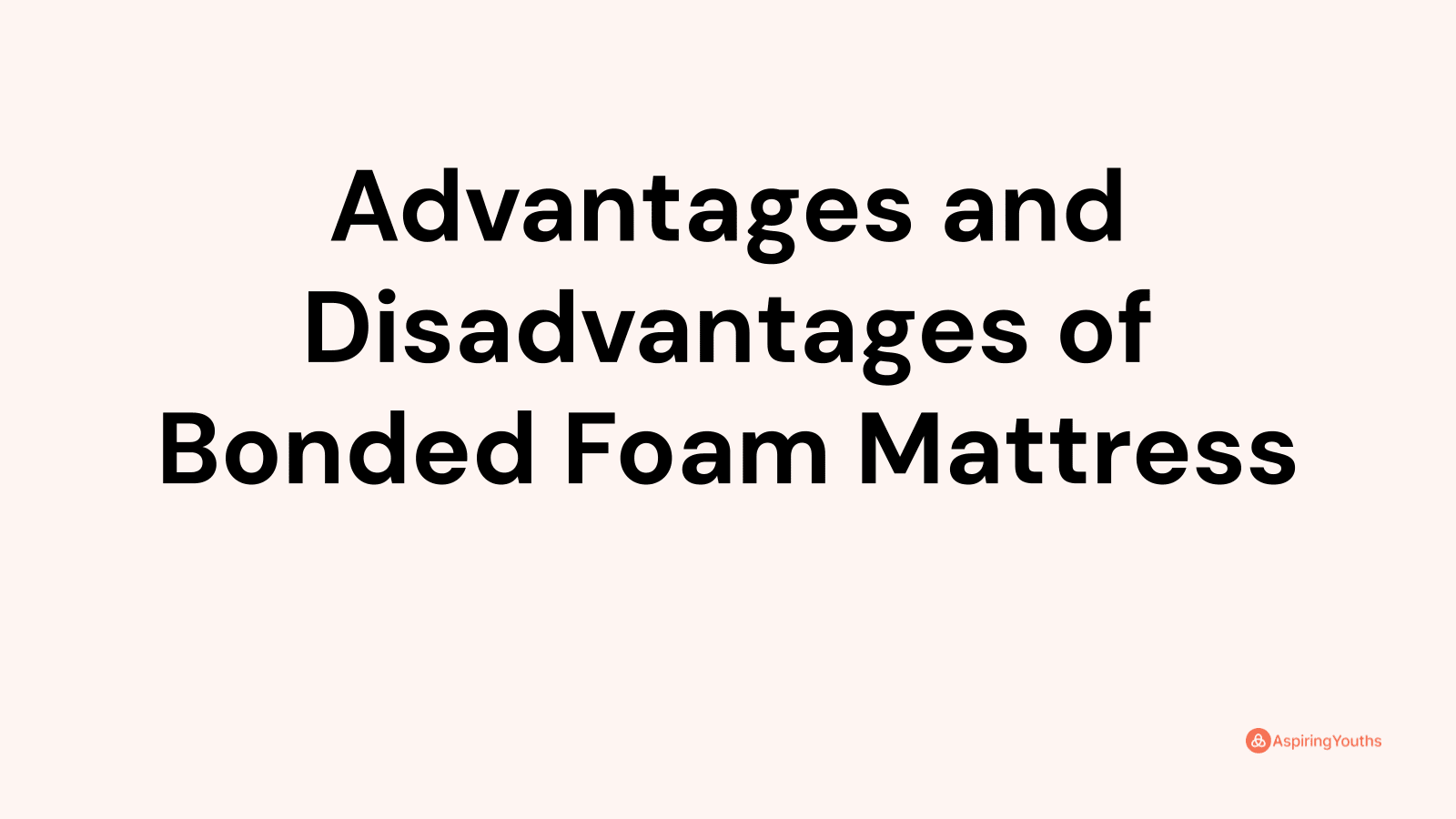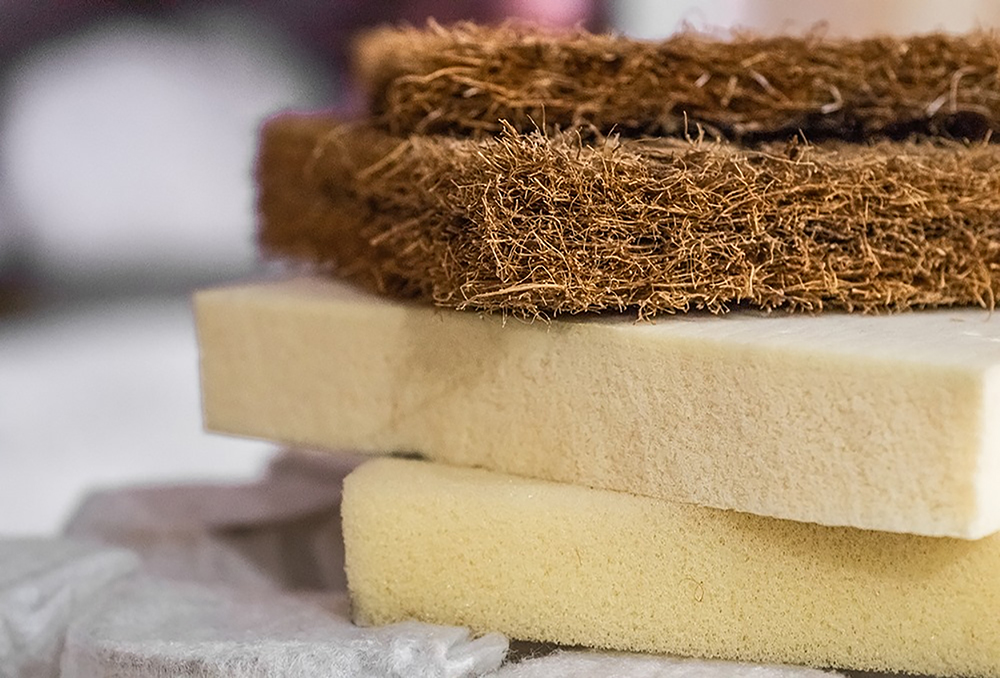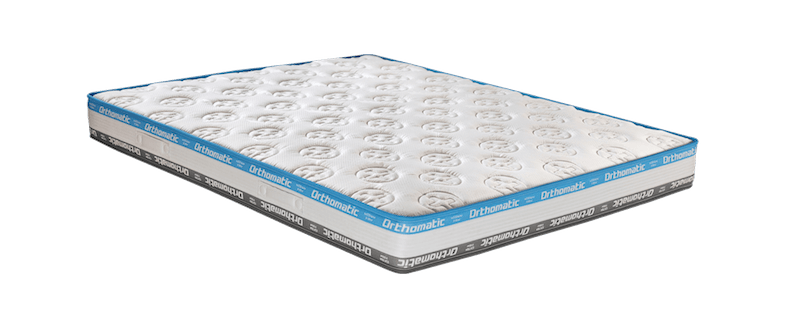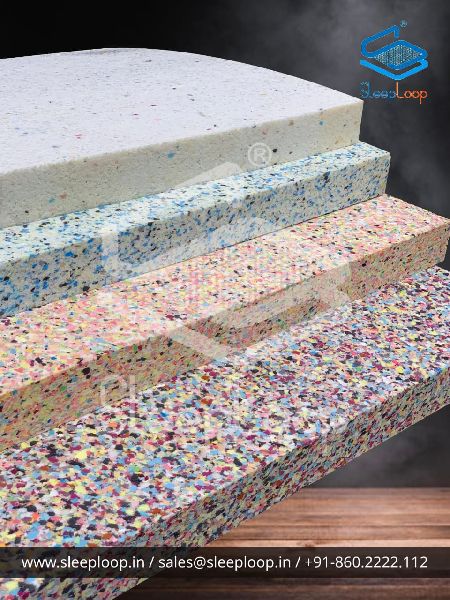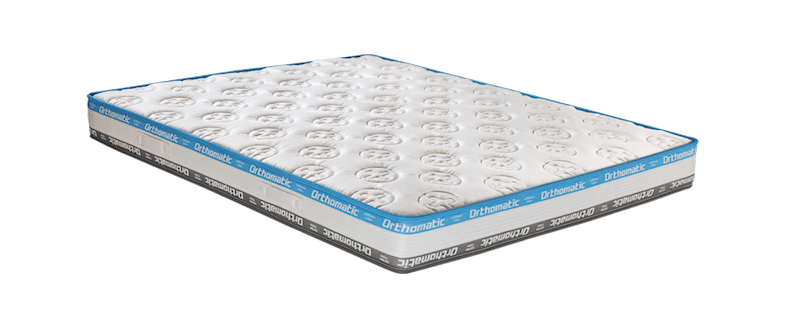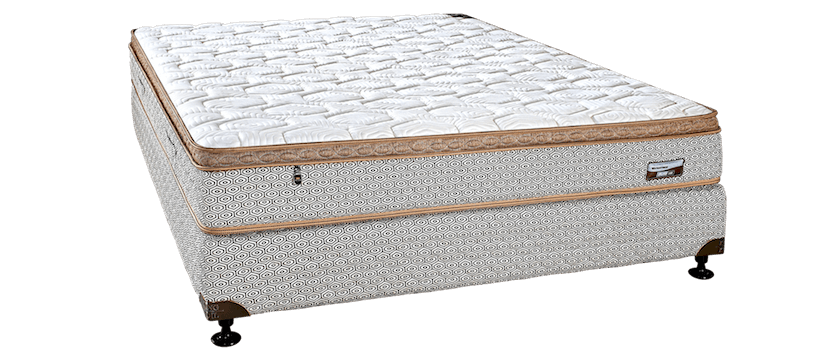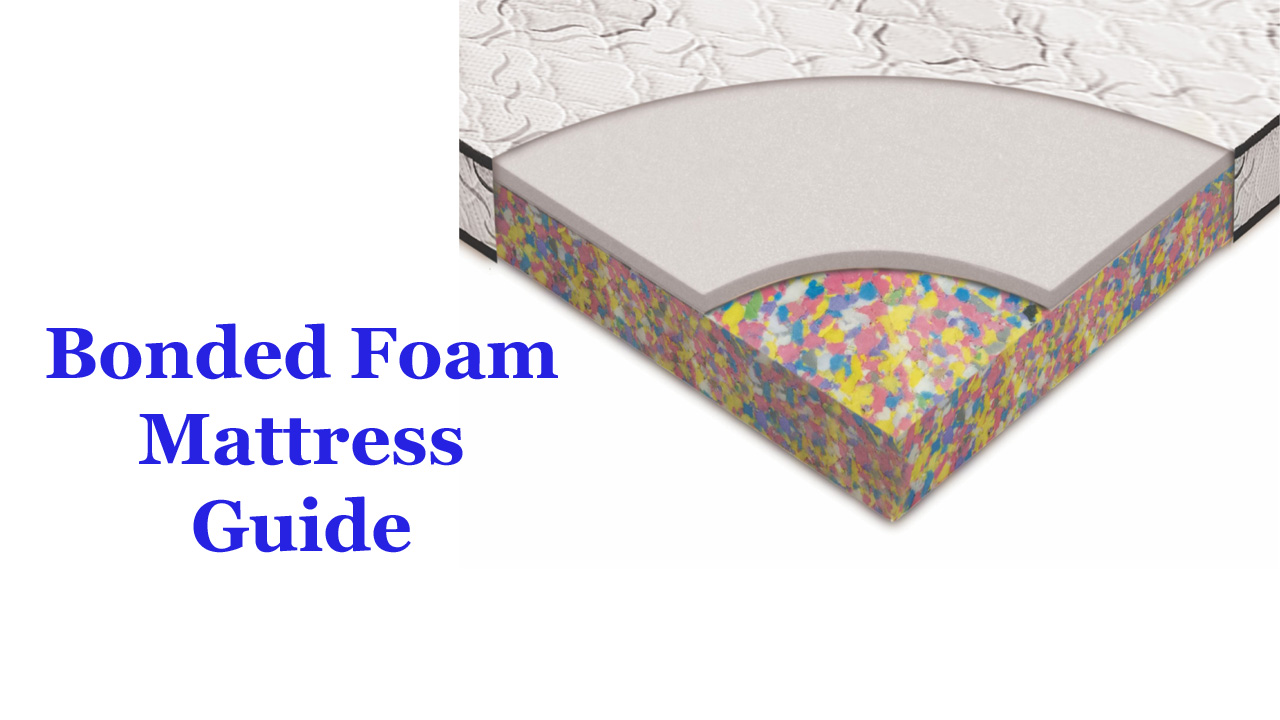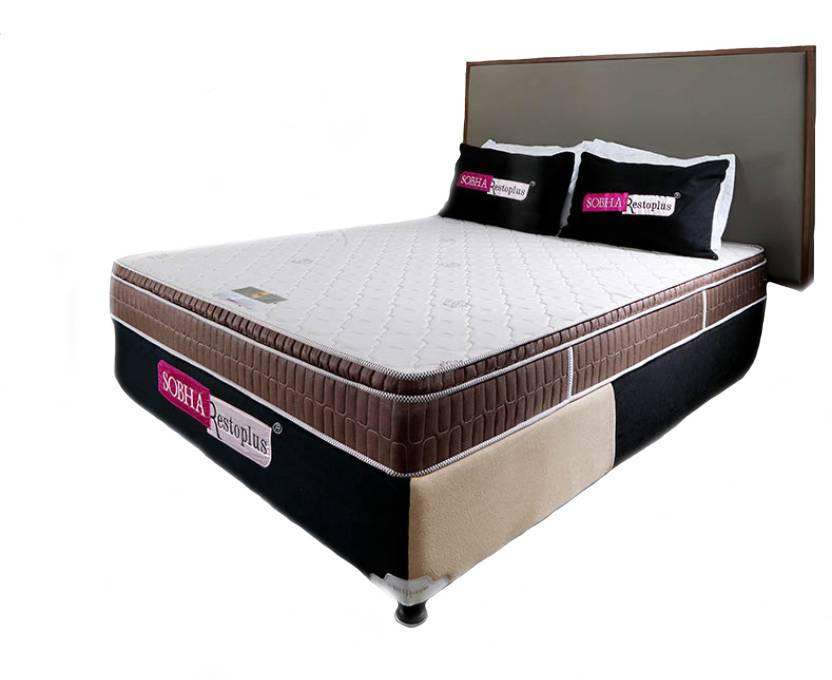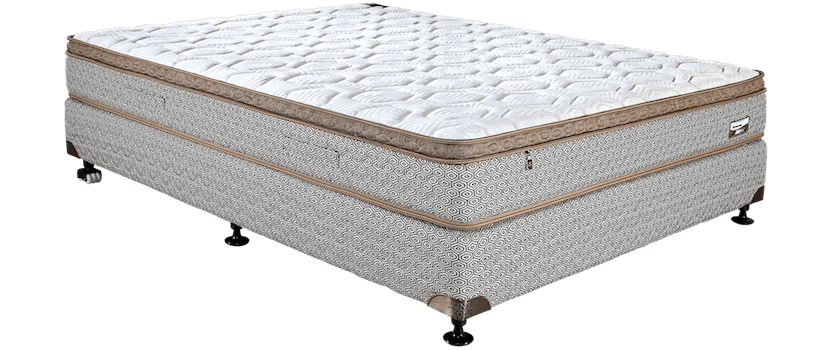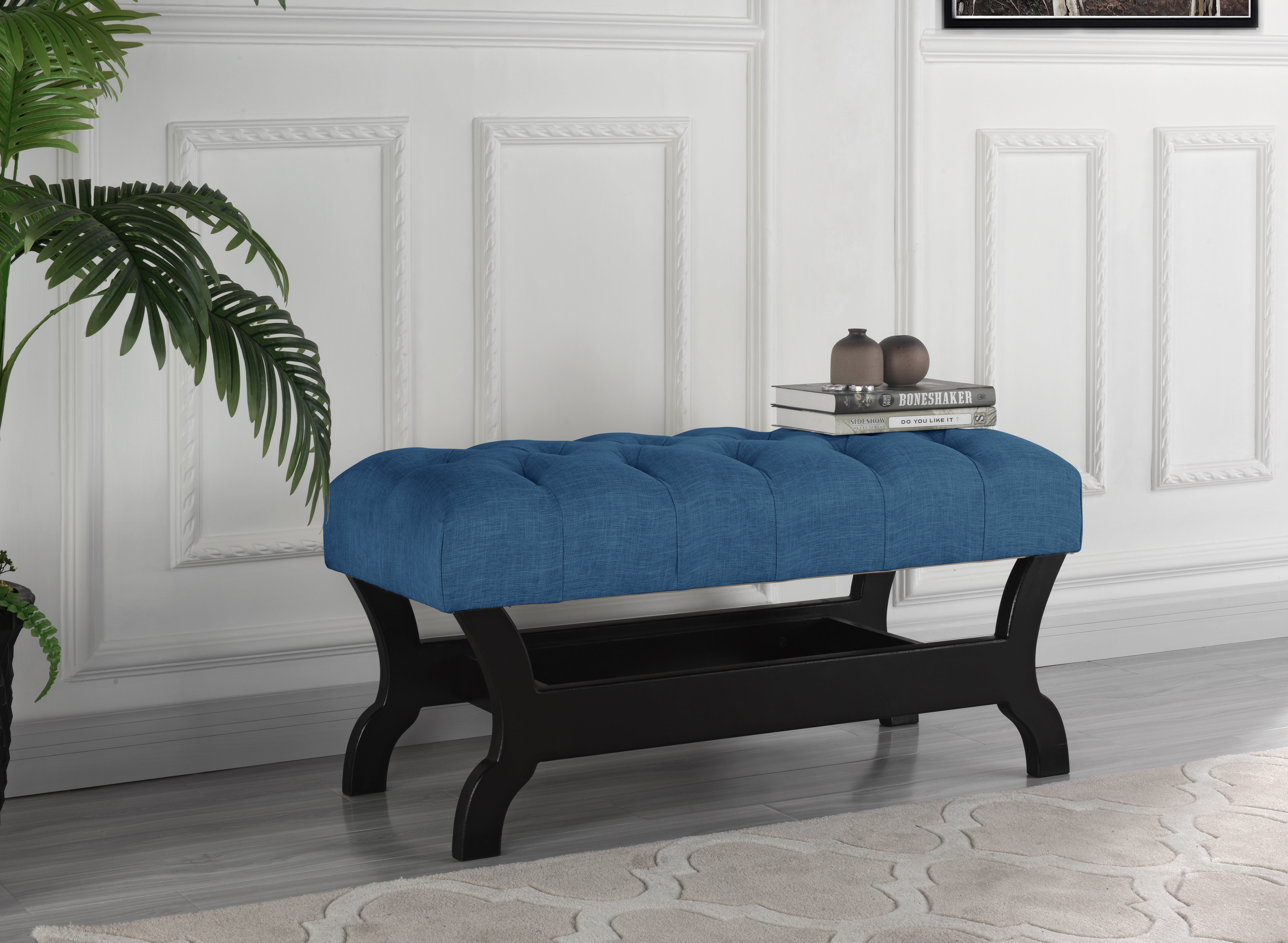Bonded foam mattresses have gained popularity in recent years due to their unique construction and benefits. Here are the top 10 advantages of using a bonded foam mattress: 1. Affordable - Bonded foam mattresses are relatively affordable compared to other types of mattresses, making them a great option for budget-conscious individuals. 2. Supportive - The bonded foam material provides excellent support and helps distribute body weight evenly, reducing pressure on joints and promoting proper spinal alignment. 3. Comfortable - The soft and plush feel of bonded foam mattresses makes them comfortable to sleep on, providing a cozy and relaxing sleeping surface. 4. Durable - Bonded foam mattresses are known for their durability and can last for many years with proper care and maintenance. 5. Good Motion Isolation - The bonded foam material absorbs motion and prevents it from transferring to other parts of the bed, making it an ideal choice for couples or light sleepers. 6. Hypoallergenic - Bonded foam mattresses are resistant to dust mites, mold, and other allergens, making them a great option for those with allergies or respiratory issues. 7. Easy to Maintain - Unlike other types of mattresses, bonded foam mattresses do not require flipping or rotating, making them low maintenance and easy to care for. 8. Versatile - Bonded foam mattresses are available in various firmness levels, making them suitable for different sleeping positions and preferences. 9. Lightweight - The foam material used in bonded foam mattresses is lightweight, making them easy to move and transport. 10. Environmentally Friendly - Bonded foam mattresses are made using eco-friendly materials, making them a more sustainable choice for the environment.Bonded Foam Mattress Advantages
While bonded foam mattresses have many benefits, they also have some disadvantages that should be considered before making a purchase. Here are the top 10 disadvantages of bonded foam mattresses: 1. Off-Gassing - Some bonded foam mattresses may emit a chemical odor when first unpacked, which can be unpleasant for some individuals. 2. Heat Retention - The dense nature of bonded foam can trap heat, making it uncomfortable for hot sleepers, especially in warmer climates. 3. Not Suitable for Heavyweight Individuals - Bonded foam mattresses may not provide enough support for heavier individuals and may sag or develop permanent body impressions over time. 4. Lack of Bounce - Bonded foam mattresses do not have a lot of bounce or springiness, which some individuals may find uncomfortable. 5. Durability Concerns - While bonded foam mattresses are generally durable, they may not last as long as traditional spring mattresses. 6. Limited Edge Support - The lack of edge support in bonded foam mattresses may make it difficult to sit or sleep near the edge of the bed. 7. Maintenance Issues - Bonded foam mattresses may require more frequent cleaning and maintenance to keep them in good condition. 8. Not Customizable - Unlike some other types of mattresses, bonded foam mattresses are not customizable, meaning you cannot adjust the firmness or other features to your liking. 9. May Not Be Suitable for Allergies - While bonded foam mattresses are generally hypoallergenic, some individuals may still have allergic reactions to the materials used. 10. May Be Too Soft or Firm for Some Individuals - The firmness level of bonded foam mattresses may not be suitable for all individuals, and some may find them too soft or too firm for their liking.Bonded Foam Mattress Disadvantages
In summary, here are the pros and cons of using a bonded foam mattress: Pros:Bonded Foam Mattress Pros and Cons
In addition to the advantages and disadvantages listed above, there are several other benefits of using a bonded foam mattress: 1. Pressure Relief - Bonded foam mattresses are designed to provide pressure relief and reduce strain on pressure points, promoting a more comfortable and restful sleep. 2. No Noise - Unlike traditional spring mattresses, bonded foam mattresses do not make any noise when bearing weight, making them a great option for light sleepers. 3. No Partner Disturbance - The excellent motion isolation of bonded foam mattresses means that you and your partner can sleep peacefully without disturbing each other's sleep. 4. Compatible with Adjustable Beds - Bonded foam mattresses are compatible with adjustable beds, giving you the freedom to adjust the position of your bed for maximum comfort. 5. Suitable for Different Sleeping Positions - Whether you sleep on your back, stomach, or side, a bonded foam mattress can provide the necessary support and comfort for a good night's sleep. 6. Easy to Set Up - Bonded foam mattresses are usually compressed and rolled for shipping, making them easy to set up and install in your bedroom. 7. No Allergens - The hypoallergenic nature of bonded foam mattresses means that they do not contain any allergens that can trigger allergies or respiratory issues. 8. No Sagging - Unlike traditional spring mattresses, bonded foam mattresses do not sag over time, ensuring consistent support and comfort throughout the lifespan of the mattress. 9. Good for Back Pain - The supportive nature of bonded foam mattresses can help alleviate back pain and promote better spinal alignment, leading to a more restful sleep. 10. Conforms to Body Shape - The foam material used in bonded foam mattresses conforms to the body, providing a customized and comfortable sleeping surface for individuals of all shapes and sizes.Bonded Foam Mattress Benefits
Aside from the disadvantages listed earlier, there are a few other potential drawbacks of using a bonded foam mattress: 1. May Not Be Suitable for Hot Sleepers - The heat retention of bonded foam mattresses may make them uncomfortable for individuals who tend to sleep hot. 2. May Be Too Soft or Firm for Some Individuals - The firmness level of bonded foam mattresses may not be suitable for all individuals, and some may find them too soft or too firm for their liking. 3. Limited Availability - Bonded foam mattresses may not be as widely available as other types of mattresses, making it more challenging to find them in physical stores. 4. Not as Responsive - Unlike latex or hybrid mattresses, bonded foam mattresses are not as responsive and may take longer to regain their shape after being compressed. 5. May Have Chemical Odor - The off-gassing of bonded foam mattresses may be a concern for individuals sensitive to chemical smells. 6. Not Ideal for Heavyweight Individuals - As mentioned earlier, bonded foam mattresses may not provide enough support for heavier individuals, leading to sagging and discomfort over time. 7. May Not Last as Long as Other Types of Mattresses - While bonded foam mattresses are generally durable, they may not have the same lifespan as traditional spring mattresses or other types of mattresses. 8. Not Suitable for People Who Prefer a Bouncy Mattress - The lack of bounce in bonded foam mattresses may not be suitable for individuals who prefer a bouncier and more responsive mattress. 9. May Require a Break-In Period - Some individuals may need some time to adjust to the feel of a bonded foam mattress, and it may take a few weeks to break it in and get used to it. 10. May Have Limited Warranty Coverage - Compared to other types of mattresses, bonded foam mattresses may have limited warranty coverage, so be sure to check the warranty terms before making a purchase.Bonded Foam Mattress Drawbacks
When shopping for a bonded foam mattress, here are some features to consider: 1. Density - The density of bonded foam mattresses can vary, with higher density foams providing more support and durability. 2. Thickness - Bonded foam mattresses come in different thicknesses, with thicker mattresses usually being firmer and more supportive. 3. Firmness Level - As mentioned earlier, bonded foam mattresses are available in various firmness levels, from soft to firm, allowing you to choose the one that suits your preferences. 4. Cover Material - The cover material of a bonded foam mattress can affect its overall feel, so be sure to choose one that is comfortable and durable. 5. Certifications - Look for bonded foam mattresses that have certifications for safety and environmental standards, such as CertiPUR-US or OEKO-TEX. 6. Brand Reputation - Research the brand and read reviews to ensure you are purchasing a high-quality bonded foam mattress from a reputable company. 7. Trial Period and Warranty - Many companies offer a trial period and warranty for their bonded foam mattresses, so be sure to check the terms and conditions before making a purchase. 8. Price - Bonded foam mattresses come in various price ranges, so be sure to set a budget and find one that offers the best value for your money. 9. Customer Service - Consider the customer service and support offered by the company, as you may need assistance with your purchase or have questions about the mattress. 10. Return Policy - In case you are not satisfied with your bonded foam mattress, make sure to check the return policy and procedures before making a purchase.Bonded Foam Mattress Features
While bonded foam mattresses have many benefits, they also have some limitations that may affect your decision to purchase one. Here are some factors to consider: 1. Not Suitable for All Sleeping Positions - While bonded foam mattresses are suitable for most sleeping positions, some individuals may find them uncomfortable if they sleep on their stomachs. 2. May Not Fit into All Bed Frames - The thickness and dimensions of bonded foam mattresses may not be compatible with all bed frames, so be sure to measure your bed frame before making a purchase. 3. May Not Provide Enough Support for Heavyweight Individuals - As mentioned earlier, bonded foam mattresses may not be the best choice for individuals who weigh over 250 pounds. 4. May Need to Be Replaced More Frequently - Depending on the quality and density, bonded foam mattresses may need to be replaced more frequently than other types of mattresses. 5. May Have Limited Availability - As mentioned earlier, bonded foam mattresses may not be as widely available as other types of mattresses, making it more challenging to find them in physical stores. 6. May Not Be Suitable for People with Certain Medical Conditions - If you have certain medical conditions, such as back pain or respiratory issues, bonded foam mattresses may not provide the necessary support and comfort for your needs. 7. May Not Be Suitable for Hot Sleepers - As mentioned earlier, the heat retention of bonded foam mattresses may make them uncomfortable for individuals who tend to sleep hot. 8. Limited Customization Options - Unlike some other types of mattresses, bonded foam mattresses are not customizable, meaning you cannot adjust the firmness or other features to your liking. 9. May Not Be Suitable for People Who Prefer a Bouncier Mattress - The lack of bounce in bonded foam mattresses may not be suitable for individuals who prefer a bouncier and more responsive mattress.Bonded Foam Mattress Limitations
The Advantages and Disadvantages of Bonded Foam Mattresses

Advantages
 One of the main advantages of a bonded foam mattress is its affordability. Bonded foam mattresses are typically less expensive than other types of mattresses, making them a budget-friendly option for those on a tight budget. This is because bonded foam mattresses are made from scrap foam pieces that are bonded together, rather than using a solid block of foam.
Another advantage of bonded foam mattresses is their durability. These mattresses are able to withstand heavy use and can last for many years without losing their shape or support. This is because the foam pieces are bonded together, creating a strong and resilient structure. This also makes bonded foam mattresses a good choice for those with a higher body weight, as they can provide the necessary support and comfort.
Bonded foam mattresses are also known for their comfort and pressure-relieving capabilities. The foam pieces can conform to the body, providing a supportive and comfortable sleep surface. This can be especially beneficial for those with joint or back pain, as the mattress can help alleviate pressure points and promote better spinal alignment.
One of the main advantages of a bonded foam mattress is its affordability. Bonded foam mattresses are typically less expensive than other types of mattresses, making them a budget-friendly option for those on a tight budget. This is because bonded foam mattresses are made from scrap foam pieces that are bonded together, rather than using a solid block of foam.
Another advantage of bonded foam mattresses is their durability. These mattresses are able to withstand heavy use and can last for many years without losing their shape or support. This is because the foam pieces are bonded together, creating a strong and resilient structure. This also makes bonded foam mattresses a good choice for those with a higher body weight, as they can provide the necessary support and comfort.
Bonded foam mattresses are also known for their comfort and pressure-relieving capabilities. The foam pieces can conform to the body, providing a supportive and comfortable sleep surface. This can be especially beneficial for those with joint or back pain, as the mattress can help alleviate pressure points and promote better spinal alignment.
Disadvantages
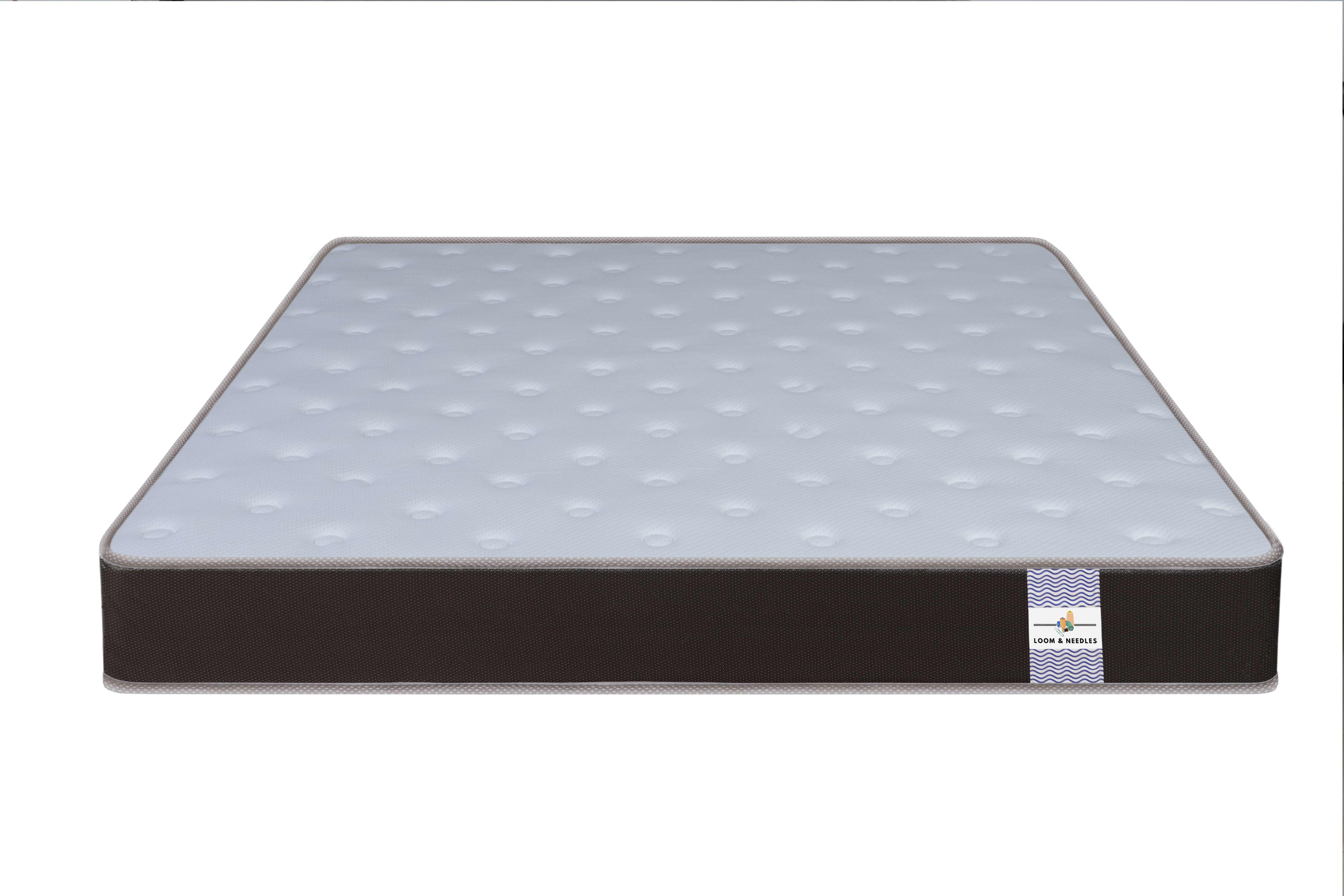 One of the main disadvantages of bonded foam mattresses is their lack of breathability. The foam pieces are tightly bonded together, leaving little room for air circulation. This can cause the mattress to retain heat, making it uncomfortable for those who tend to sleep hot. Additionally, the lack of breathability can lead to the buildup of moisture, which can create a breeding ground for bacteria and mold.
Another disadvantage of bonded foam mattresses is their potential for off-gassing. The bonding process can release chemicals and odors, which may be unpleasant for some individuals. While the smell usually dissipates within a few days, those with sensitivities or allergies may find it bothersome.
Lastly, bonded foam mattresses may not offer as much support as other types of mattresses. Since the foam pieces are bonded together, they may not have the same level of firmness and support as a solid foam or coil mattress. This can be a disadvantage for those with specific support needs, such as those with chronic back pain.
In conclusion, bonded foam mattresses have their own set of advantages and disadvantages. They are an affordable and durable option, but may not offer the same level of breathability and support as other types of mattresses. It is important to consider your specific needs and preferences when deciding if a bonded foam mattress is the right choice for you.
One of the main disadvantages of bonded foam mattresses is their lack of breathability. The foam pieces are tightly bonded together, leaving little room for air circulation. This can cause the mattress to retain heat, making it uncomfortable for those who tend to sleep hot. Additionally, the lack of breathability can lead to the buildup of moisture, which can create a breeding ground for bacteria and mold.
Another disadvantage of bonded foam mattresses is their potential for off-gassing. The bonding process can release chemicals and odors, which may be unpleasant for some individuals. While the smell usually dissipates within a few days, those with sensitivities or allergies may find it bothersome.
Lastly, bonded foam mattresses may not offer as much support as other types of mattresses. Since the foam pieces are bonded together, they may not have the same level of firmness and support as a solid foam or coil mattress. This can be a disadvantage for those with specific support needs, such as those with chronic back pain.
In conclusion, bonded foam mattresses have their own set of advantages and disadvantages. They are an affordable and durable option, but may not offer the same level of breathability and support as other types of mattresses. It is important to consider your specific needs and preferences when deciding if a bonded foam mattress is the right choice for you.




